Does Yunnan coffee bean taste good? Yunnan Coffee producing area Story small Grain Variety characteristics Flavor and taste
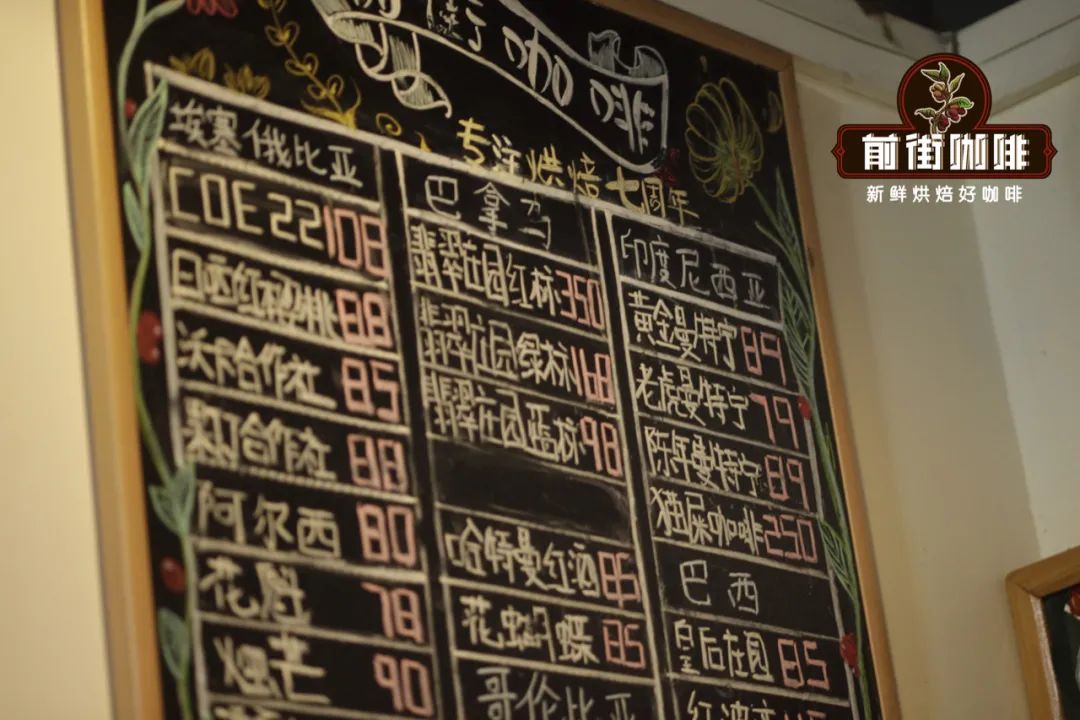
Professional coffee knowledge exchange more coffee bean information please follow the coffee workshop (Wechat official account cafe_style)
Guide reading
Perhaps the biggest image of coffee is that of an imported product. Coffee, a crop that originated in Ethiopia in Africa, is now the largest producer of Arabica coffee in Brazil. When it comes to the best coffee, it used to be said to be Jamaica Blue Mountain Coffee. Now it may be the Rose Summer Coffee of Panama.
So is coffee grown in China? Of course there is, especially the film "coming Home at one o'clock" released last year makes more people realize and realize Yunnan, the most important coffee producing area in China.
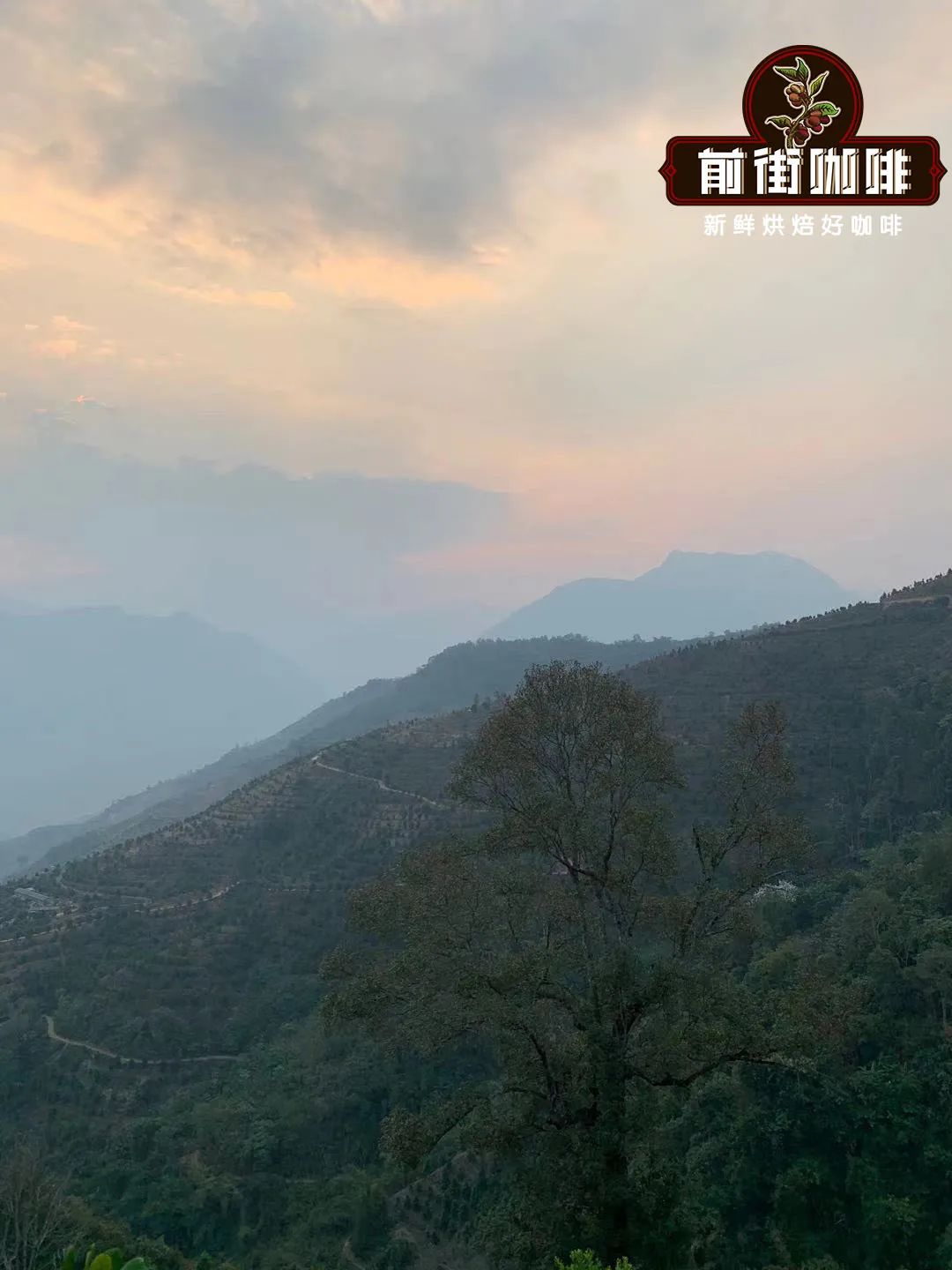
Unlike the common coffee known by fans such as Ethiopian Yegashefi Coffee and Panamanian Rose Summer Coffee, Yunnan Coffee is also rising slowly with the development and promotion of the domestic coffee market. many people have a strong interest in Yunnan coffee, but the unknown of Yunnan coffee forms a sharp contrast with the already famous coffee. We know that washed Yega Chuefeido has citrus fruit flavors, Panamanian roses connect people to white flowers, and classic Indonesian manning coffee is the flavor tone of herbal spices. What about Yunnan coffee? How does Yunnan coffee taste? Is Yunnan coffee good?
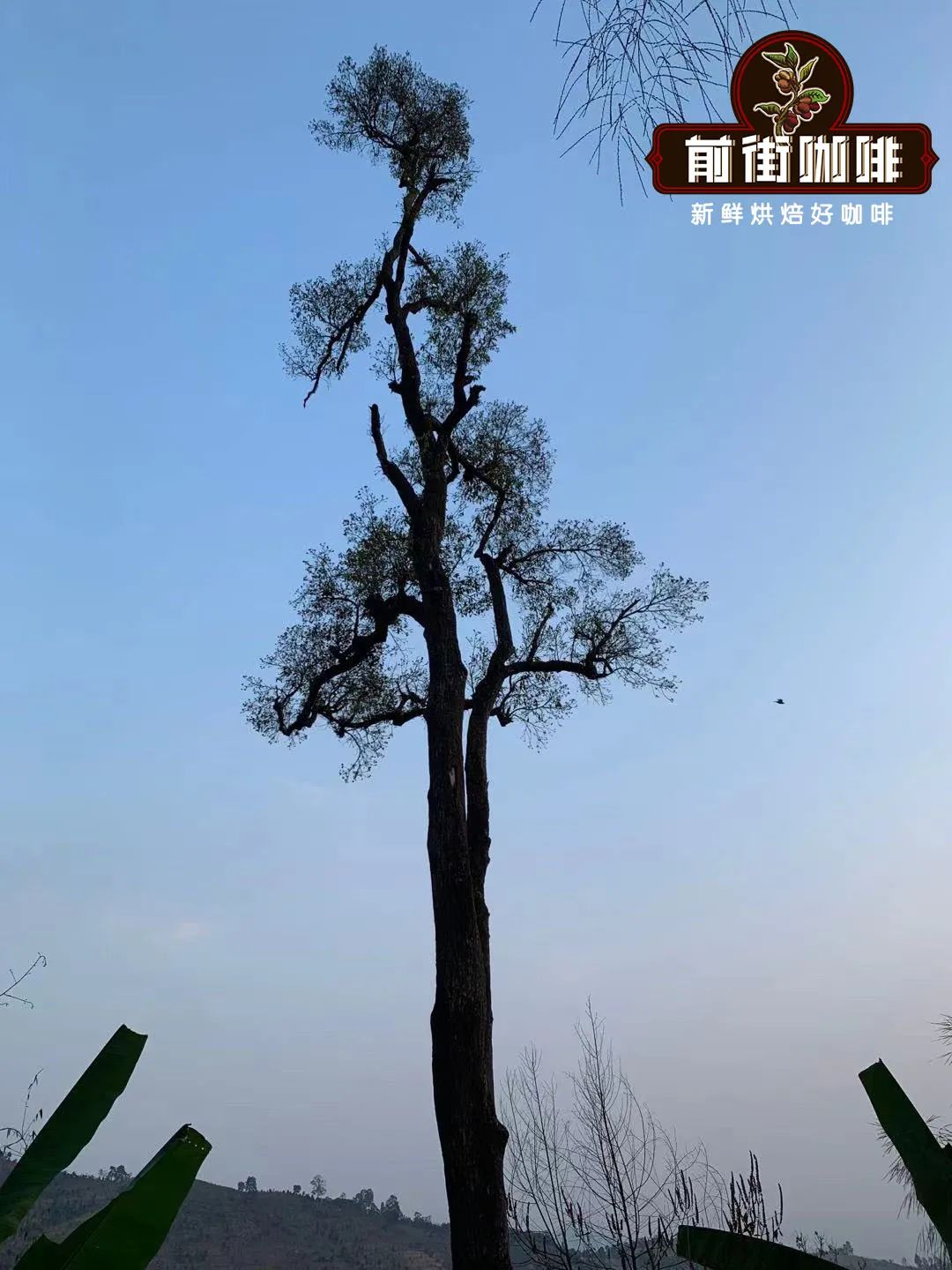
The taste of coffee is affected by many factors. If we want to know whether Yunnan coffee is good or not, we might as well learn about Yunnan coffee from the following aspects.
Coffee producing areas in Yunnan
Coffee is generally suitable for growing between the Tropic of Cancer and the Tropic of Cancer, which we call the "coffee belt". It just so happens that the west and south of Yunnan Province are located between 15 °N and the Tropic of Cancer, and most areas also have the high altitude needed to grow and produce coffee. the topography is dominated by mountains and slopes, with large undulation, fertile soil, sufficient sunshine, abundant rainfall and large temperature difference between day and night.
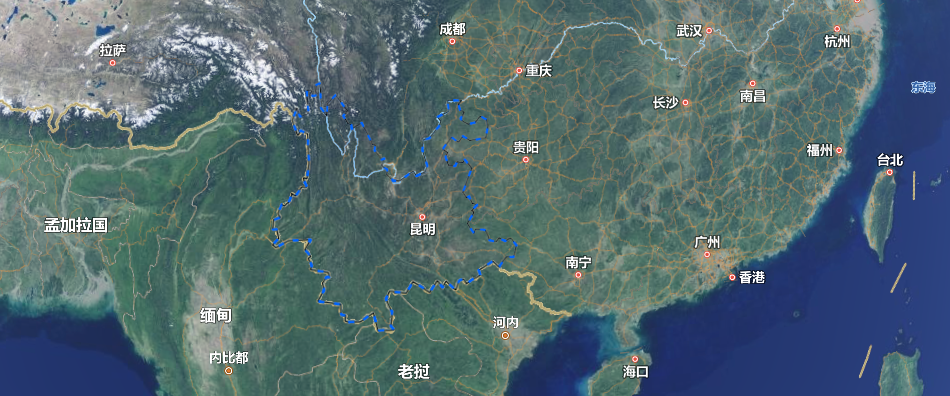
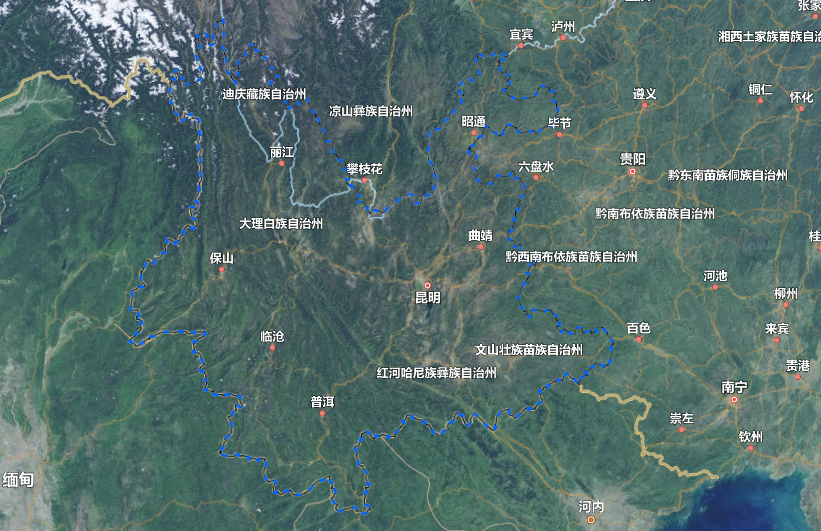
Yunnan coffee is mainly grown in Pu'er, Xishuangbanna, Wenshan, Baoshan, Dehong, Lincang and other places.
Dehong Dehong climate resources are also unique, the state is close to the Tropic of Cancer, the latitude is low, affected by the Indian Ocean southwest monsoon, belongs to the south subtropical monsoon climate.
The Gaoligong Mountain in the northeast blocks the entry of dry and cold air from Siberia to the south, and in summer, the warm and wet air from the Indian Ocean rises along the southwest sloping mountain windward slope, forming abundant natural precipitation, coupled with the large angle of solar incidence and good air transparency in the low-latitude plateau. it is one of the areas with high light quality in the country.
The annual solar radiation is 137 Mel 143 cal / cm, the annual rainfall is between 1400 and 1700 mm, the annual average temperature is 18.4 to 20 degrees Celsius, the annual sunshine is 2,281 Mel 2453 hours, the annual accumulated temperature is 6400 Mel 7,300 degrees Celsius, the annual land evaporation is between 1400 Mel 1900 mm, and the drought index is between 0.4 Mel 1.2.
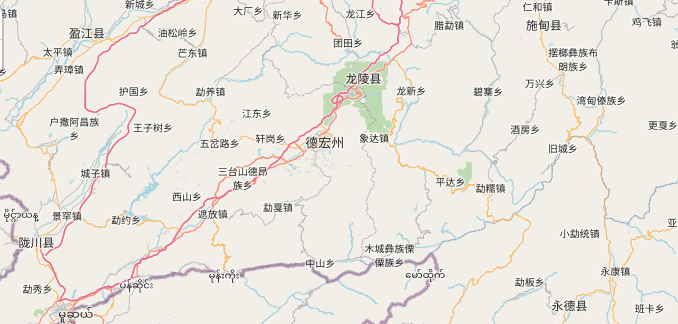
Dehong has formed the characteristics of no severe cold in winter, no heat in summer, abundant rainfall, the same period of rain and heat, dry and cold in the same season, small annual temperature difference, large daily temperature difference, short frost period and less frost days, which provides good growth and overwintering conditions for coffee trees.
The cultivation of coffee in Baoshan Baoshan began in the mid-1950s, and the first coffee seedling was introduced by the late patriotic overseas Chinese Mr. Liang Jinshan in Southeast Asia. In recent years, with the expansion of international trade, Lujiangba's small-grain coffee is more famous.
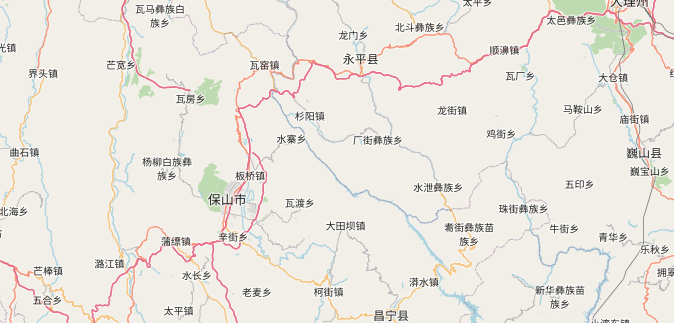
Baoshan is a low-latitude mountain subtropical monsoon climate, because it is located in the low-latitude plateau, the topography is complex, forming a three-dimensional climate of "one mountain is divided into four seasons, ten miles different days".
Its characteristics are: the annual temperature difference is small, the daily temperature difference is large, the average annual temperature is 14 Mel 17 °C, the precipitation is abundant, dry and wet is distinct, the distribution is uneven, and the annual rainfall is 700 Mel 2100 mm.
Lincang's unique geographical location and climatic conditions make Lincang become the focus of many coffee enterprises, and have successively established 200 mu and 100 mu of high-quality coffee breeding bases in Mengding Town and Lincang Happiness Farm in Gengma Autonomous County of the city. coffee is grown in Gengma, Zhenkang, Yun County, Cangyuan, Yongde and other places.
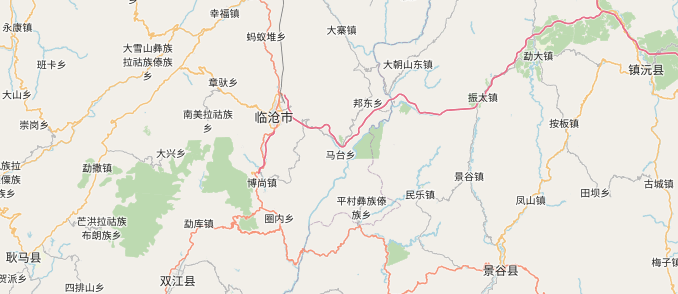
Lincang City belongs to the subtropical low-latitude plateau mountain monsoon climate, the topography is complex, is an area of various climate types.
Lincang is mainly affected by the warm and humid air flow in the Indian Ocean and the southwest monsoon, and the distinction between the four seasons is not obvious, but the dry and rainy season is distinct, Rain Water is more, the sunshine time is long, the annual average sunshine number is more than 2000 hours, the frost period is relatively short, and there is no frost in some areas all the year round; the three-dimensional climate is obvious, and the annual average temperature in the mountain area is 13 degrees Celsius.
Pu'er tea village Pu'er coffee has been cultivated for 150 years. At the end of 1990s, Pu'er City began to cultivate coffee as a dominant backbone industry to adjust the industrial structure and increase farmers' income.
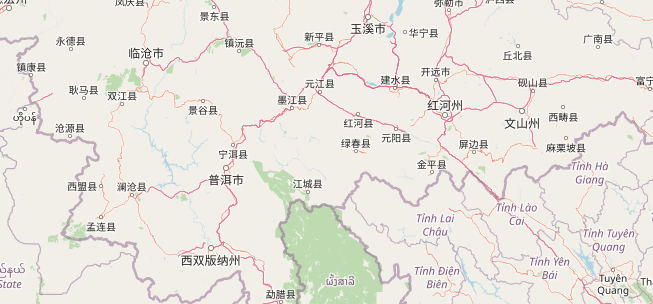
Due to the influence of the subtropical monsoon climate, most of Pu'er is frost-free all the year round, cold in winter and hot in summer. The average annual temperature in Pu'er is 15 to 20.3 degrees Celsius, the annual frost-free period is more than 315 days, and the annual rainfall is 1100 to 2780 mm.
Coffee varieties in Yunnan
The taste of Yunnan coffee is also influenced by the variety of coffee it grows. Baristas in Qianjie Coffee often share that the variety of coffee is the main keynote source of the taste of a cup of coffee. The rose summer variety is an example. The delicate fragrance of tea flowers is pleasant. Since the winner of the best Panamanian raw bean competition in 2004, it has gained great fame. Every producing area in the world has tried to plant the rose summer variety. Even in Yunnan, you can find rosy summer, and in 2020, a small batch of Yunnan rosy summer was released in the domestic market.
However, Qianjie Coffee believes that the taste of Yunnan comes from its Katim variety, which has been cultivated for many years, so Qianjie Coffee chose a Yunnan Katim as the entry-level food rations in Yunnan, with a flavor of nuts and brown sugar. alcohol is thick and well balanced.
Although classified under the Arabica species, Katim is not entirely Arabica. Katim is a hybrid of Timor and Kaddura, Kaddura we know is a natural variety from Bourbon, and Tim is a coffee variety with Robusta gene, and Robusta's lineage also gives Katim higher disease resistance, pest resistance and yield. But it also means that the taste is not refined.
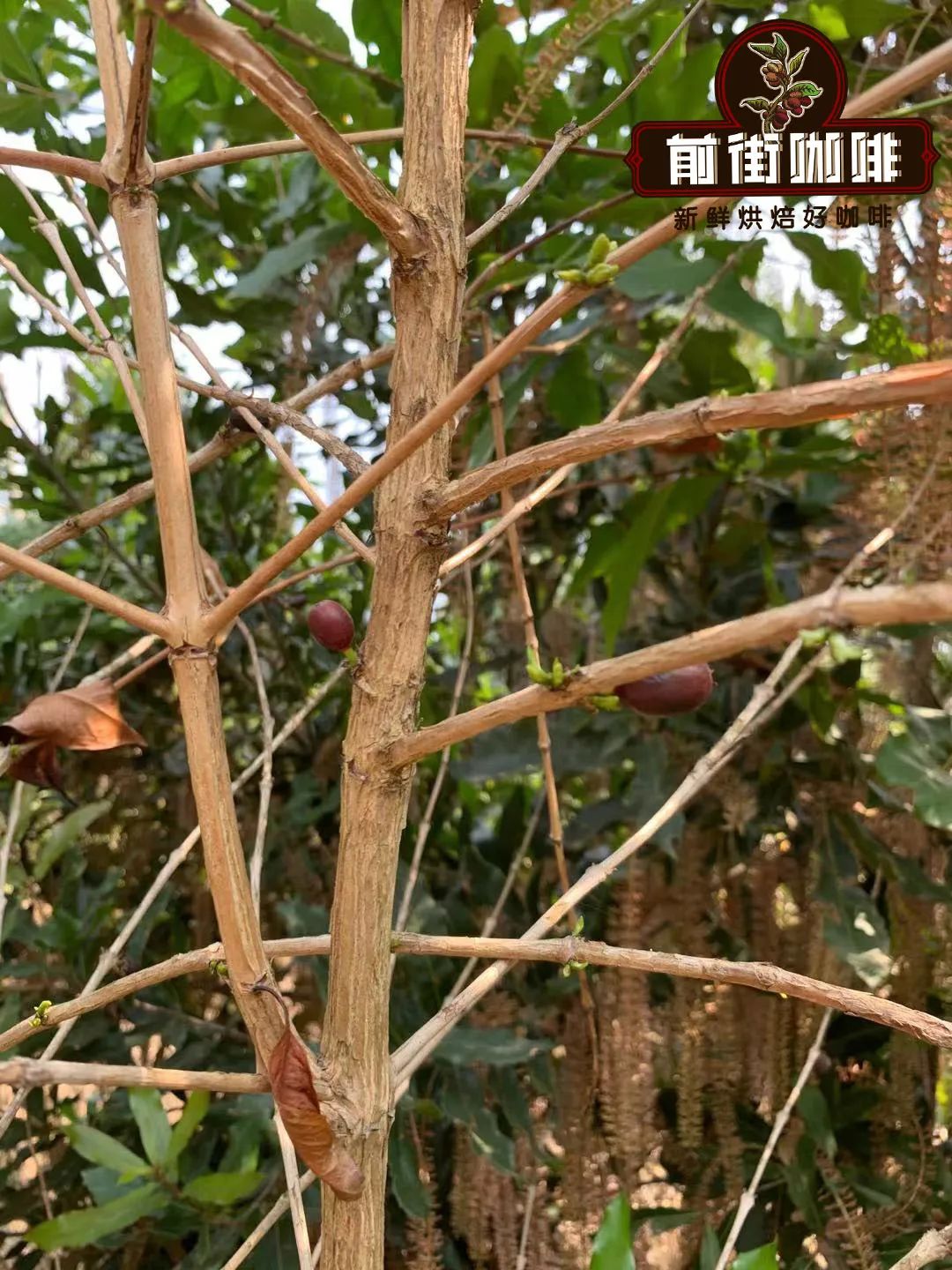
In addition to Katim, Yunnan also grows iron pickup and bourbon and other varieties. Qianjie coffee also puts a tin card on the shelves as a representative of Yunnan coffee. Yunnan's iron pickup coffee is compared with Katim, the whole is still mainly the tonality of nuts and brown sugar, but the iron card variety gives this coffee slightly more delicate acidity, alcohol thickness is slightly lower, more balanced.
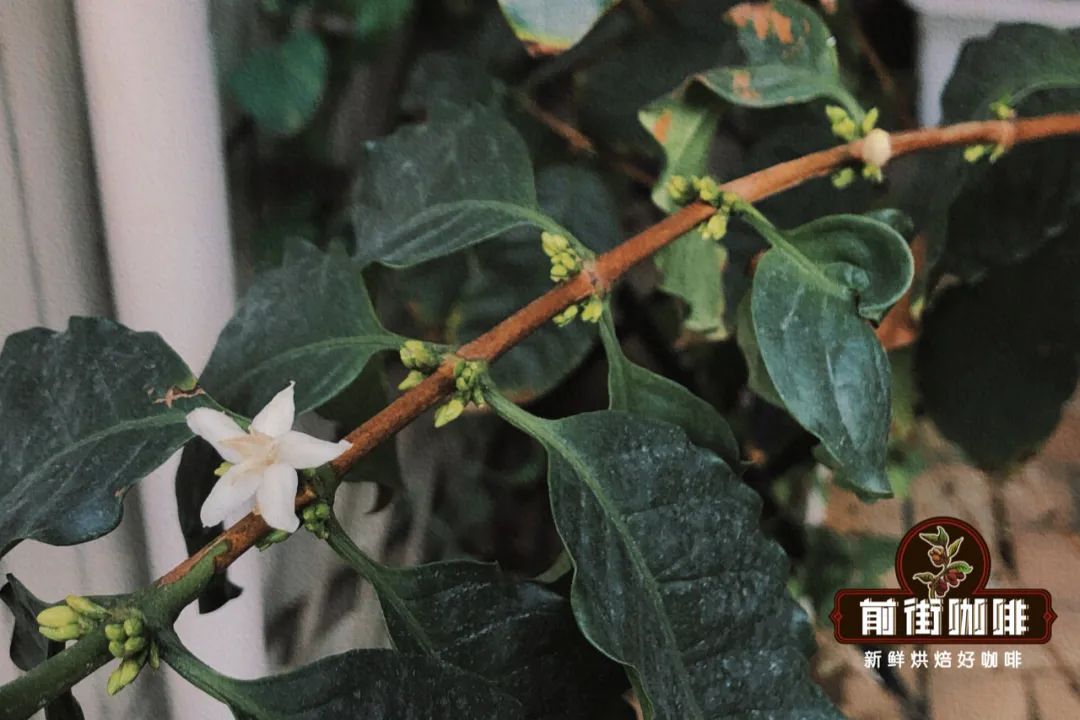
Right next to the front street coffee shop is a pot of tin card varieties and a pot of Katim varieties, which have tall trees, long nodes, low yields and brown new leaves. On the other hand, the Katim variety has many leaves, short nodes, compact branches, high yield and shorter growth cycle than tin card.
The treatment of Yunnan Coffee
Finally, the taste of Yunnan coffee comes from the choice of treatment. Yunnan coffee is mainly treated with water washing and sun exposure. The water-washed coffee is characterized by cleanliness, stability and higher acidity. Sun-cured coffee is characterized by high sweetness, rich layers and full taste.
What is the process of washing treatment? The peel and pulp of the picked coffee fruit are removed by a practical machine, the peeled coffee beans are put into a fermentation tank for fermentation, the pectin layer is decomposed by fermentation, and the fermented coffee beans are washed repeatedly with clean water to remove the decomposed pectin. Finally, the coffee beans are dried. Finally, the dried coffee beans can be stored and waiting to be shipped everywhere.
Qianjie believes that washing treatment can best reflect the basic flavor characteristics of coffee in a producing area, so Qianjie coffee chose a washing treatment Katim from Baoshan as food rations in Yunnan.
Another Yunnan bean in Qianjie is a sun iron pickup from Lincang, which is grown in the manor of Lincang, Yunnan. Using the sun treatment, the coffee flavor is plum, Brin, brown sugar, nuts.
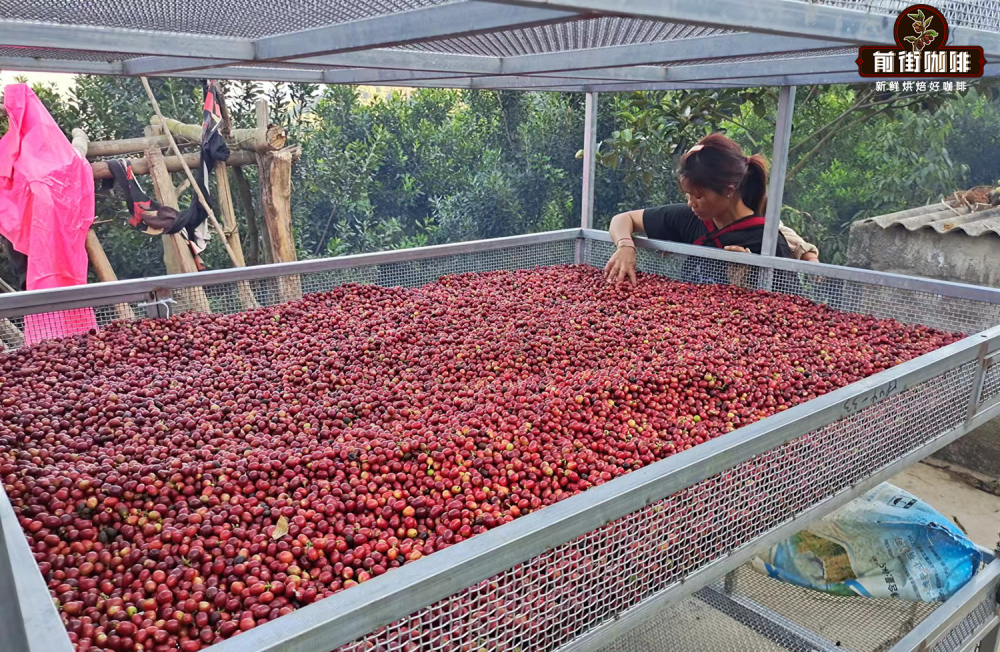
So is Yunnan coffee good?
Now we understand the origin of Yunnan, Yunnan coffee varieties, Yunnan coffee treatment, these factors combined into Yunnan coffee nuts, brown sugar, strong flavor of the tone, you want to say that Yunnan coffee tastes good? It's certainly delicious for people who like balanced, nutty flavor.
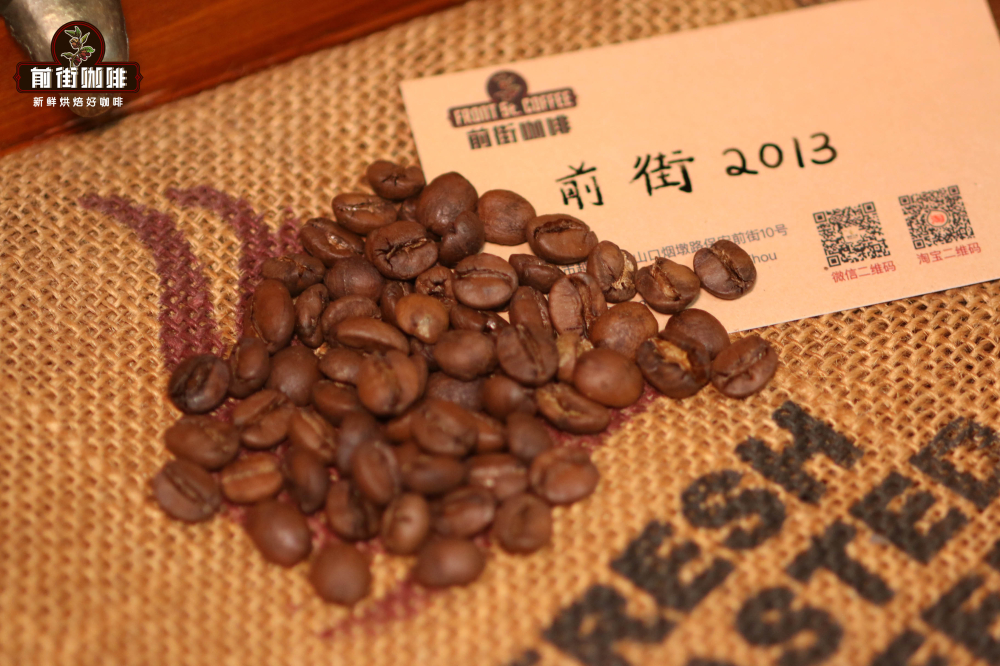
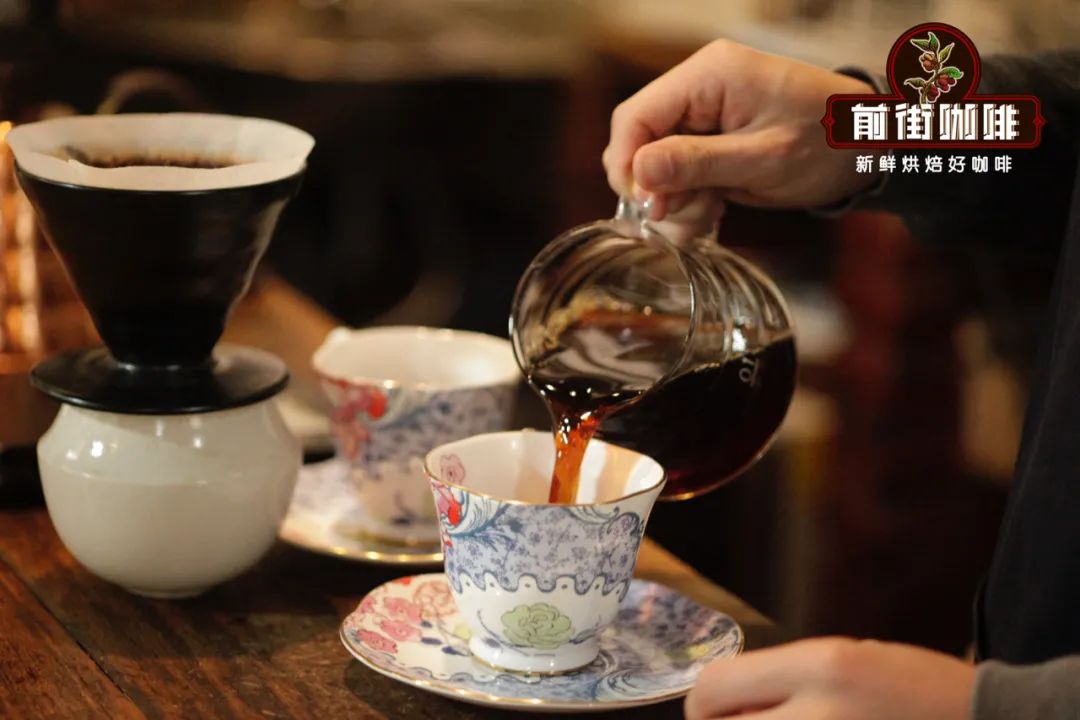
Coffee is a subjective drink, and everyone has different preferences, so they naturally like different kinds of coffee. There are more than 50 kinds of coffee in the bean list of coffee shops in Qianjie. Different coffee producing areas combine different coffee varieties and treatments to form different flavors.
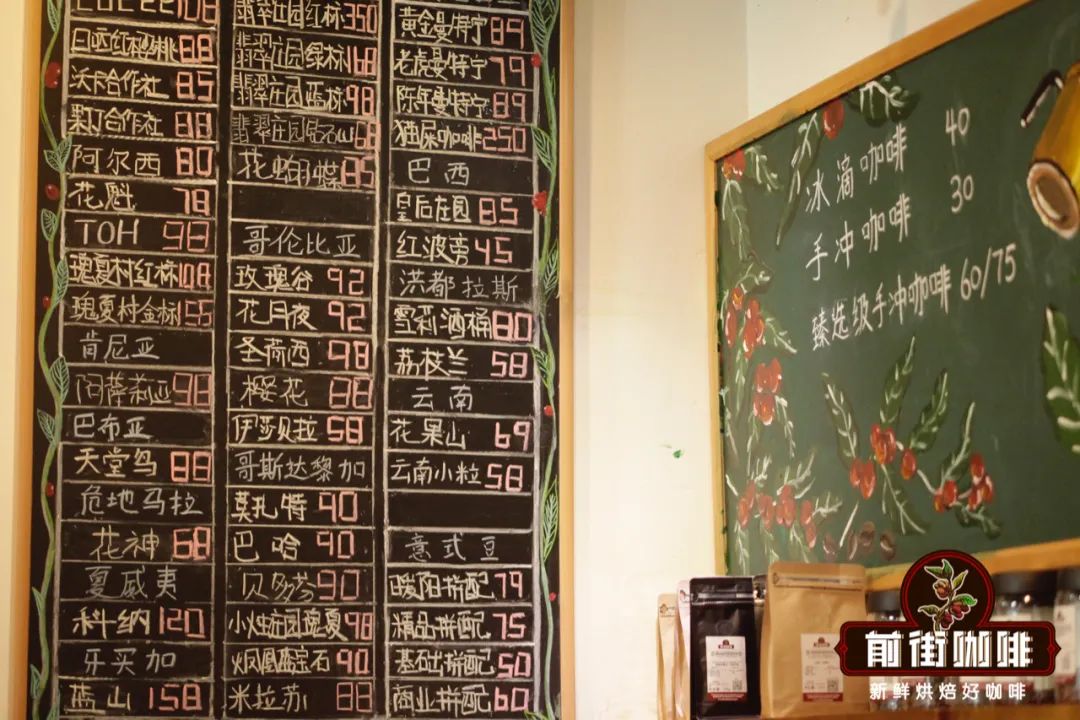
For more boutique coffee beans, please add private Qianjie coffee on Wechat. WeChat account: kaixinguoguo0925
Important Notice :
前街咖啡 FrontStreet Coffee has moved to new addredd:
FrontStreet Coffee Address: 315,Donghua East Road,GuangZhou
Tel:020 38364473
- Prev
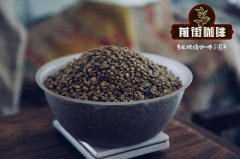
The opening of the third Yunnan Coffee Raw Bean Competition Global judges gathered in Pu'er to look for good coffee in Yunnan.
Professional coffee knowledge exchange more coffee bean information please follow the coffee workshop (Wechat official account cafe_style) Yunnan Coffee China Yunnan small fine coffee beans Yunnan coffee bean prices the third Yunnan Coffee Raw Bean Competition opened in Pu'er City, Yunnan Province on the 9th. 123 beans from five major coffee producing areas in Yunnan will be accepted by judges from China, the United States, Malaysia, Australia and other countries.
- Next
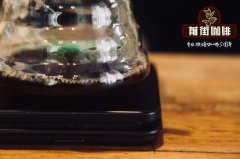
What is the Yunnan raw bean contest? Why can the price of Yunnan small coffee beans sell so high?
Professional coffee knowledge exchange more coffee bean information please follow the coffee workshop (Wechat official account cafe_style) China Yunnan Coffee _ Yunnan small Fine Coffee beans _ Yunnan Coffee Price 2017 Best Yunnan Coffee International bidding for Yunnan Coffee entered the international market for the first time in 2017, the first international auction was held in Seattle: best Yunnan Coffee (Best of Yunnan)
Related
- Detailed explanation of Jadeite planting Land in Panamanian Jadeite Manor introduction to the grading system of Jadeite competitive bidding, Red bid, Green bid and Rose Summer
- Story of Coffee planting in Brenka region of Costa Rica Stonehenge Manor anaerobic heavy honey treatment of flavor mouth
- What's on the barrel of Blue Mountain Coffee beans?
- Can American coffee also pull flowers? How to use hot American style to pull out a good-looking pattern?
- Can you make a cold extract with coffee beans? What is the right proportion for cold-extracted coffee formula?
- Indonesian PWN Gold Mandrine Coffee Origin Features Flavor How to Chong? Mandolin coffee is American.
- A brief introduction to the flavor characteristics of Brazilian yellow bourbon coffee beans
- What is the effect of different water quality on the flavor of cold-extracted coffee? What kind of water is best for brewing coffee?
- Why do you think of Rose Summer whenever you mention Panamanian coffee?
- Introduction to the characteristics of authentic blue mountain coffee bean producing areas? What is the CIB Coffee Authority in Jamaica?

